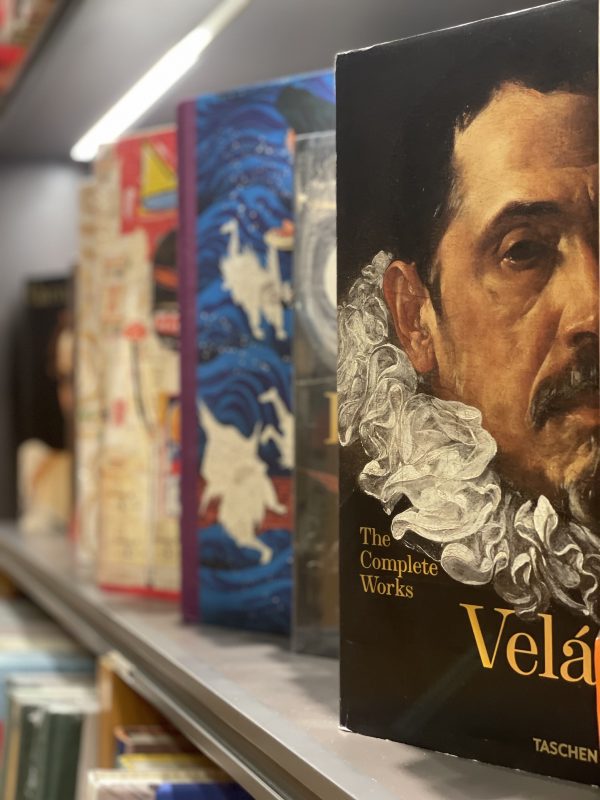
"Whenever you feel like finding fault in someone, remember that in this world, not everyone enjoyed the privileges you did."
Scott Fitzgerald
When I opened the PDF file of “The Great Gatsby”, this sentence showed itself to me at the beginning of the text in the middle of the page with such power that I could no longer ignore it. I was immediately inspired to start writing. I opened a new Word document and began typing. This time, this repeated and accidental encounter with a particular book showed its rejection here and in these writings. Have you ever had a chance encounter that seemed to keep happening over and over again? That’s how I felt about this one book that seemed to keep popping up in my life.
The first time I encountered this book was while reading Murakami’s “Norwegian Wood”. I wasn’t even aware of the correct pronunciation. Upon the descriptions of the “Norwegian Wood”, it was pretty clear that it must be a great read. During the writing practice workshop, Shahin Kalantari introduced two distinct translations of the classic novel, “The Great Gatsby.” The translations were chosen for the “metamorphosis” exercise part. It was only then that I discovered the book was a novel written by Scott Fitzgerald. So, before this, I had thought that the book in Watanabe’s hand (in “Norwegian Wood” novel) was one of those heavy philosophical reads. This was mainly because Nagazawa had gone on and on about how great it was. Of course, this does not mean that, in my opinion, novels do not have the potential to effectively communicate those ideas and themes. But, well, I had this impression from the mood and tone of Nagazawa and Utanabe’s dialogues. (I must honestly confess that at that time, I had no understanding of the greatness and power of novels in human transformation. My assumption was that novels were merely for entertainment, and for profound and deepening experiences, one had to turn to philosophical books.)
I’ve found that encountering a book, a person, or even a concept multiple times in different situations at a specific time can trigger a real ‘aha’ moment inside me. It’s like my mind is saying, “Hey, check this out! This could be something cool or useful.” It’s a great way to become more aware and learn new things. It’s like a sign, you know? A marker or something that shows you the way. That’s why I never skip these repetitions and always try to learn from them. Sometimes, the best part of repeating something comes into focus little by little, even if it’s not immediately clear. It’s like when the clouds are so thick you can’t see the sun, but you know it’s still shining up there.
As soon as I read the first sentence of the book, I was immediately reminded of my ten-year endeavor and journey in my job to maintain a healthy balance and take care of my mental well-being, despite facing countless contradictions and challenges. Trying not to judge people when in the guise of judging you are appointed for exactly that. It can be pretty confusing when you’re trying not to judge others, but you’re also being appointed to do just that. It can be difficult to reconcile the desire to avoid judging others with the responsibility of being appointed to judge. It’s a tricky situation that requires some serious thought to get right. It’s been almost two years since I quit being a judge, but this one scene just keeps replaying in my head over and over again. It’s like it’s stuck there for good. The convicted thief, who suffers from various neurological disorders, had a fearful yet optimistic gaze. He waited for me to say the words “parole”, “suspension”, mitigation”, or at least “electronic bond”. His pleading expression was apparent as he hoped for a favorable outcome. Upon opening the case, I saw the strict judge’s handwriting reiterating the sentence with no mitigation or suspension, leaving me with a thousand hopes and doubts. My heart is shattered into pieces. This scene was repeated to me many times. Many times, I encountered accused and convicted who were themselves victims, victims of society, victims of our shortcomings and selfishness, the innocent people of society. Victims of a devastated economy, sick society, a shattered family, and victims of fate. I always thought that at any moment, our places could be exchanged. There was no guarantee that I would be born and raised in their circumstances, and they in mine. Today, they would sit in my place and I in theirs.
When faced with ten or fifteen cases a day involving individuals standing handcuffed before you under various criminal charges, and in a vulnerable state, maintaining self-preservation, conscience alertness, and balance in the stormy sea of judgment is a very difficult task, requiring seasoned valor and strength on this battlefield. Being vigilant every moment amidst the chaos of the courthouse, with its high and low pressures and irrelevant and distressing distractions, knowing that the person standing before you today could have been in your place, requires great care not to judge or admonish him in any way, even in thought, look, or word, outside the framework of regulations.
I’m not sure how successful I’ve been in maintaining this constant vigilance over the past decade of judging, but today, reading this sentence, besides recalling, and reviewing all these memories, was a reminder that these days, the same battle is still raging in another arena Be vigilant so that in this field as well, you do not taint your thoughts, words, and eyes with judgment and condemnation.
هروقت دلت خواست عیب کسی رو بگیری، یادت باشه که تو این دنیا، همه مردم مزایای تورو نداشتند
اسکات فیتس جرالد
فایل پی دی اف کتاب “گتسبی بزرگ” را که باز کردم این جمله در اوایل متن وسط صفحه با چنان قدرتی خودش را بهم نشان داد که دیگر نتوانستم نادیدهاش بگیرم. بلافاصله صفحه جدیدی از وورد را باز و شروع به نوشتن کردم. این بار این مواجهه مکرر و تصادفی با یک کتاب خاص، ردش را اینگونه و در این سخنبافه نشان داد. داستان ازین قراراست که اولین بار من با این کتاب موقع خواندن رمان “جنگل نروژی” موراکامی مواجه شدم. اصلا حتی نمیدانستم تلفظ درستش چیست. اما از تعاریف “جنگل نروژی” بر میآمد که باید کتاب درخور و قَدَری باشد. ازقضا، همان روزها در کارگاه تمرین نوشتن، شاهین کلانتری برای بخش تمرین “دگرگویی”، دو ترجمه از “گتسبی بزرگ” را معرفی کرد. تازه آنجا بود که فهمیدم کتاب، رمانی است از اسکات فیتس جرالد. درحالی که من از نوع تحسینهای ناگازاوا بخاطر دیدن کتاب در دست واتانابه (در جنگل نروژی) گمان کردم کتابی است غیرداستانی با مضامین ثقیل و پیچیده فلسفی. البته این بدان معنا نیست که از نظرم قالب رمان قابلیت انتقال چنین مضامینی را نداشته باشد؛ اما، خب از حال و هوای دیالوگهای ناگازاوا و اوتانابه چنین برداشتی داشتم. (باید صادقانه اعتراف کنم که آن زمان هیچ درکی از عظمت و قدرت رمان در تحول آدمی نداشتم و تصورم این بود که رمان برای سرگرمی است و برای بزرگ و عمیق شدن تنها باید سراغ کتابهای فلسفی رفت.)
لااقل برای من، این دست برخوردهای مکرر و متعدد با یک کتاب، یک آدم و یا یک مفهوم، در موقعیتهای گوناگون در یک برهه زمانی خاص، تلنگری آگاهیبخش است. میتوان گفت نوعی تابلوی راهنماست. به همین دلیل هیچوقت سرسری از این تکرارها رد نمیشوم و سعی میکنم درسم را از آنها بگیرم. معمولا در یک بزنگاهی، نکته طلایی این تکرارها از پس ابرهای ضخیم ابهام ذرهذره رخ مینمایند.
جمله آغازین کتاب تداعیکننده تلاش ده سالهام درتمام لحظاتِ کاری برای حفظ تعادل و سلامت نفس در دریای پرتلاطم تناقضات بود. تلاش برای قضاوت نکردن انسانها وقتی در کسوت قضاوت و دقیقا برای همین کار منصوب شدهای. صحنهای تکراری که هنوز هم بعد از قریب دو سال که از کنارگیری از شغل قضا میگذرد، زنده و جاری در مقابل چشمانم در حرکت است. صحنه چشمان ترسان و پرامید محکومی به اتهام سرقت که از بیماریهای متعدد اعصاب رنج میبرد و با نگاههای ملتمسانه به من، منتظر بود تا کلمات “آزادی مشروط “، “تعلیق”، ” تخفیف” و یا حداقل “پابند الکترونیک” از دهانم خارج شود. با هزار امید و البته تردید پرونده را باز کردم و دستخط قاضی سختگیر شعبه … تجدیدنظر را دیدم که بدون موافقت با هیچ تخفیف و تعلیقی بر اجرای کامل حکم تاکید نموده بود. قلبم درد گرفت. بارها این صحنه برایم تکرار شده بود. بارها با متهمان و محکومانی مواجه شدم که خودشان قربانی و بزدهدیده بودند. بزهدیده جامعه. بزهدیده کوتاهیها و خودخواهیهای ما افراد مثلا غیرمجرم اجتماع. قربانی اقتصاد ویران، اجتماع بیمار، خانواده متلاشی، قربانی تقدیر و … . همیشه و هربار به این فکر میکردم که هر لحظه ممکن بود جای ما با هم عوض شود. هیچ تضمینی نبود که من در شرایط او متولد میشدم و رشد میکردم و او در شرایط من. او امروز جای من مینشست و من جای او.
وقتی روزی دست کم ده – پانزده مورد مواجهه با افرادی داری که به عناوین مختلف مجرمانه در مقابلت دستبند به دست و در نقطه ضعف ایستاده اند، حفظ سلامت نفس، بیداری وجدان و تعادل در دریای طوفانی قضاوت کاری بسیار سخت است و پهلوانی ورزیده و پرزور در این عرصه میطلبد. اینکه در شلوغیهای کار دادسرا، فشارهای بالا و پایین و حواشی بیربط و آزاردهنده، هر لحظه آگاه و هوشیار باشی که فردی که امروز روبهرویت ایستاده میتوانست جای تو باشد، پس مواظب باش که جز در چهارچوب مقررات، ذرهای با اندیشه، نگاه یا کلامت او را قضاوت یا سرزش نکنی، توان زیادی میطلبد.
نمیدانم در این یک دهه از شغل قضاوت چقدر در حفظ این هوشیاریِ مدام پیروز بودم اما امروز خواندن این جمله، علاوه بر یادآوری و مرور تمام این خاطرات، تلنگری بود بر اینکه این روزها هم همان کارزار در عرصهای دیگر برپاست. <br>هوشیار باش که در این میدان نیز افکار، زبان و چشمانت را آلوده قضاوت و نکوهش نکنی.
1- واژه است که از بهمن فرسی در پیشگفتار کتاب “کورمال کورمال” یاد گرفتهام.
2- ناگازاوا و واتانابه از شخصیتهای رمان “جنگل نروژی” موراکای هستند.
3- نوع و درجه بیماری در حدی نبود که مشمول مقررات جنون و یا عدم تحمل حبس شود و امکان ادامه درمان در زندان میسر بود.



